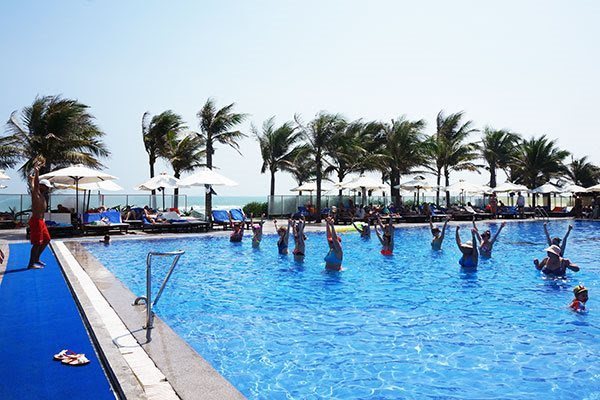 |
|
With the new visa types, the country hopes to lure individual investors and facilitate strategic projects
|
After continuous debate and revisions, the National Assembly (NA) last week adopted the revised Law on Foreigners’ Entry into, Exit from, Transit through and Residence in Vietnam, which will take effect on July 1, 2020.
One of the most notable new highlights in the law is that foreign investors in Vietnam will be offered assorted visa types with different valid times based on their investment capital volumes (see box).
“The classification of investors based on their investment capital volume to offer them different visas is aimed to affirm the country’s eminent incentive policy in order to attract strategic investors, and large-scale investment projects in line with the Politburo’s Resolution No.50-NQ/TW dated August 20 on orientations to improve institutions and policies and enhance the quality and effectiveness of foreign investment through 2030,” stated a report on the new law last week delivered by the NA Standing Committee.
“At the same time, it will also help remove the existing situation that investors only fund a small amount of capital into Vietnam in order to take advantage of the current common regulations on granting a visa to investors, and then stay a long time in the country and cause economic, social, defence, and security consequences to Vietnam,” the report read.
Under the existing law, a common visa of “DT” is granted to “foreign investors and foreign lawyers practicing in Vietnam” within five years. This regulation has made it difficult for the authorised agencies to classify overseas investors, and have a legal foundation to offer incentives to lure strategic investors and major projects.
|
New visa types for foreign investors into Vietnam
|
The new law also stipulated that foreigners who enter Vietnam to look for investment opportunities shall be granted different visas depending on their purposes in Vietnam, such as LV1, LV2, DN1, and DN2.
“For foreigners who seek to invest in Vietnam via capital acquisitions, they will not be granted a visa as a direct investor because, by nature, they only come to Vietnam to purchase assets in order to seek profits without participating in activities of enterprises,” the NA Standing Committee explained.
A DN1 visa shall be granted to “people who come to work with Vietnamese-based enterprises and organisations which have a legal status under Vietnamese law”, while a DN2 visa shall be granted to those “who enter Vietnam to offer services and establish a commercial presence, and perform other related activities under international treaties to which Vietnam is a member.”
Under the existing law, a common DN visa is to be granted “to people who come to work with Vietnamese-based enterprises.”
All of these new regulations are not against the existing Law on Investment.
Furthermore, under the new law, non-nationals wishing to enter Vietnam for medical treatment shall be granted a VR visa, which is also valid for those who come to visit their relatives or for other purposes.
According to the NA Standing Committee, the new law can have direct impacts on Vietnam’s implementation of foreign policies, economic co-operation, investment attraction, trade and tourism expansion, and ensuring social order.
NA vice chairman Do Ba Ty, in charge of national defence and security issues said, “The amendments to this law are necessary as they will help foreigners and investors remove difficulties, with simplified administrative procedures, and will also effectively help Vietnam fulfil its commitments to signed free trade agreements.”
|
Nguyen Lan Phuong - Partner, Baker McKenzie
Overseas individuals and representatives of corporate investors can be issued with DT visas for up to 10 years, depending on the level of investment capital that they tend to invest in Vietnam. This development will reduce the visa burden. However, it remains to be seen if the new regime could also help boost investment. Investors' top priority are the possible returns on their investment, which are most likely to be generated in an efficient and transparent economy. So, the possibility to enter the country more often and stay longer is helpful but is not a deciding factor. Also, Vietnam aims to attract multinationals, not individuals, so flexible visas targeted at them may not bear a large impact to long-term goals. Individual investors prefer to set up an investment vehicle offshore before entering Vietnam, which is easy to do. So I do not see how investors would be encouraged by the relaxed DT visas. Marko Walde - Chief representative - German Industry and Commerce Vietnam
We think that the aim of adopting the revised law on Foreigners’ Entry into, Exit from, Transit through, and Residence in Vietnam by the National Assembly is to create favourable investment conditions for foreigners. Classifying four visa types for foreign investors into Vietnam appears sophisticated. More important, from a German investor’s perspective, Vietnam should further improve the transparency in public administration, to keep up with the rapid development of international trade, save time, and costs for businesses and investors. Vietnam should also accelerate the implementation of its one-stop-shop mechanism, an evidence of its dedication to bring in a clearer and more transparent investment environment. More consistency, reliability, and simplified public administration, business and investment registration processes will boost investment and confidence of foreigners in Vietnam. ADAM SITKOFF - Executive director - American Chamber of Commerce in Hanoi
Having foreigners visit, invest, and work here has had a transformative role in the development of Vietnam. Americans have invested billions of US dollars here, creating good jobs, and helping the country become more productive, efficient, safe and cleaner. Vietnam benefits when more people come and invest here. For that reason, it is important the government reduce administrative burdens and continue to help improve business conditions that strengthen the private sector and promote economic and social development here. We will continue to work on lowering barriers to trade, facilitating investment and travel, and helping Vietnam create a high-standard, transparent, and stable business environment. VIR |
Nguyen Thanh

Foreigners allowed to change visa status while in Vietnam: NA
The National Assembly (NA) on Monday voted for amendments to the immigration law, for the first time allowing visitors to change their visa status and prolong their stays in Vietnam without having to fly out of the country.

Vietnam's tour firms anxious about visa waiver deadline
A five-year visa waiver program for tourists from Russia, Japan, South Korea, Denmark, Norway, Finland and Sweden is set to last until late this year, leaving many Vietnamese tour operators anxious about whether the Government will extend it.
 Non-nationals with differing investment scales in Vietnam will be granted different visas in the country, making it more favourable for authorised agencies to apply incentives to certain initiatives.
Non-nationals with differing investment scales in Vietnam will be granted different visas in the country, making it more favourable for authorised agencies to apply incentives to certain initiatives.

